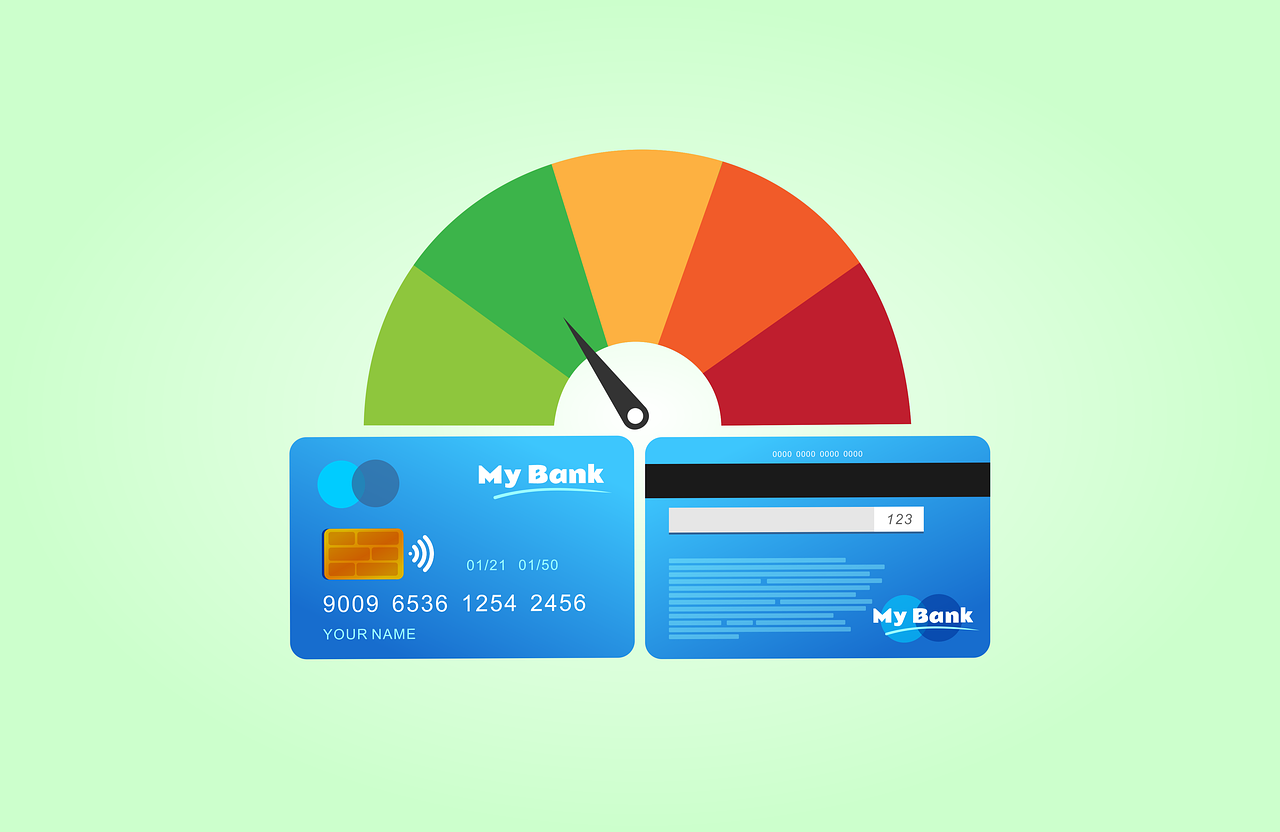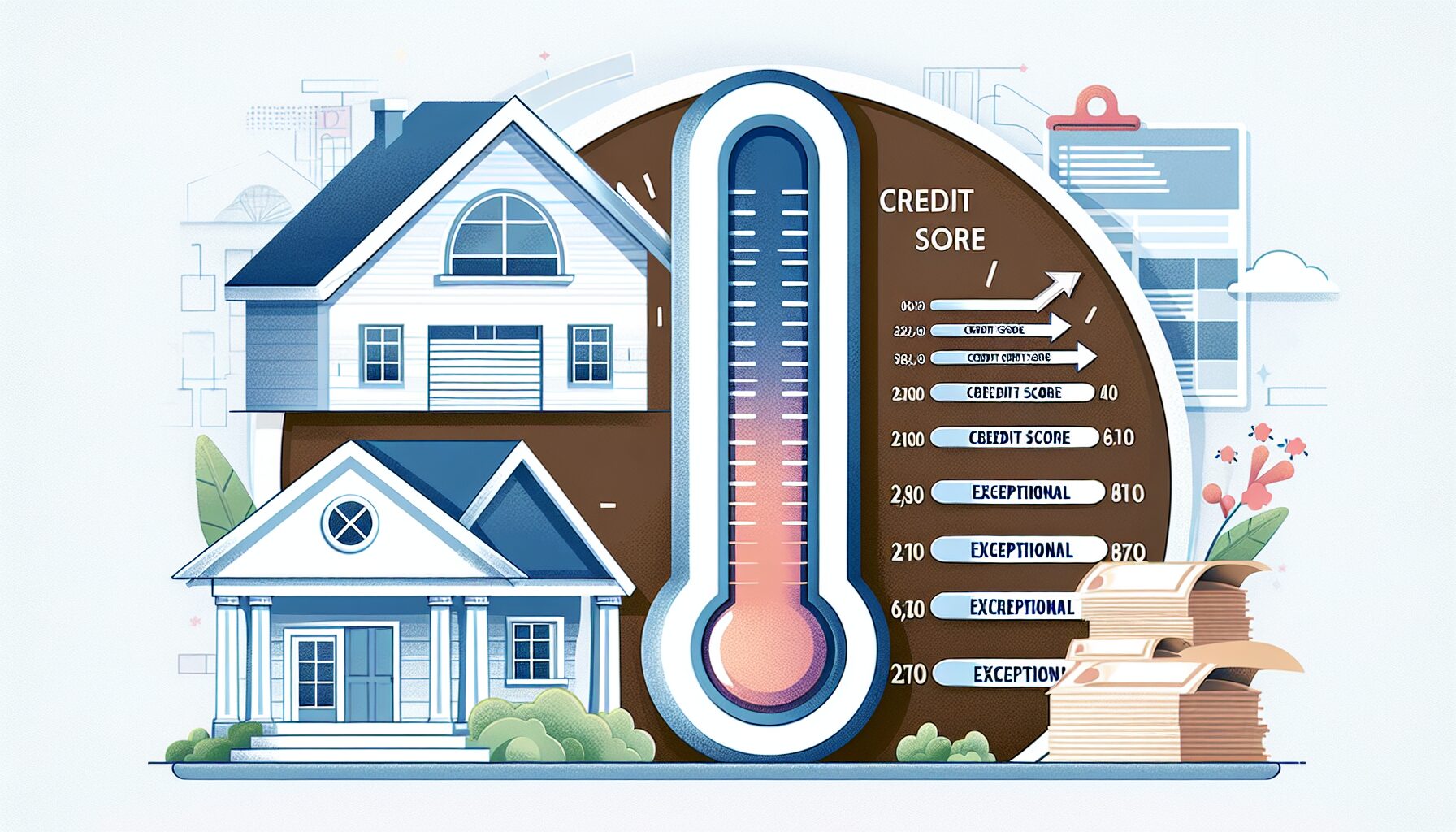
Are you dreaming of buying your own home but unsure of what credit score you need to secure a mortgage loan? Look no further! We have all the information you need to understand the credit score requirements for a mortgage loan. Whether you are a first-time homebuyer or looking to refinance, knowing your credit score is crucial in navigating the lending process. This article will break down the credit score ranges and give you a clear idea of what you need to achieve your homeownership dreams. Don’t let the uncertainty hold you back; let’s explore your credit score requirements together!

Table of Contents
Factors affecting credit score for a mortgage loan
Payment history
Your payment history plays a crucial role in determining your credit score for a mortgage loan. Lenders want to see a track record of timely payments on your debts, such as credit cards, loans, and other bills. Late payments or a history of delinquencies can negatively affect your credit score, making it more difficult to secure a mortgage loan.
Credit utilization ratio
Another factor that impacts your credit score is your credit utilization ratio. This ratio is the amount of credit you are currently using compared to the total amount of credit available to you. It is recommended to keep your credit utilization ratio below 30% to maintain a healthy credit score. Higher ratios can suggest financial instability and may raise concerns for lenders when considering your mortgage application.
Length of credit history
The length of your credit history is also taken into account when calculating your credit score. Lenders prefer borrowers with a longer credit history as it provides more information on your financial responsibility and stability. Opening new credit accounts or closing old ones can potentially shorten your credit history and impact your credit score.
Credit mix
Having a diverse credit mix, which includes different types of credit such as credit cards, loans, and a mortgage, can positively impact your credit score. It shows that you can handle a variety of credit responsibly and demonstrates your ability to manage different financial obligations.
New credit applications
Each time you apply for new credit, whether it’s a credit card or a loan, it may result in a hard inquiry on your credit report. Multiple hard inquiries within a short period can negatively impact your credit score. It is important to be mindful of unnecessary credit applications, especially when you are in the process of applying for a mortgage loan.
Minimum credit score requirements
Conventional loans
Conventional loans, which are not insured by the government, typically have higher credit score requirements compared to other types of loans. While the specific credit score requirements may vary among lenders, most conventional loans require a minimum credit score of 620 or higher.
FHA loans
An FHA loan, insured by the Federal Housing Administration, is often a popular option for first-time homebuyers or those with lower credit scores. FHA loans generally have more lenient credit score requirements and may be approved for borrowers with credit scores as low as 500. However, a higher credit score, typically around 580 or above, is preferred to qualify for a lower down payment.
VA loans
VA loans, available to eligible veterans and active-duty military members, do not set a minimum credit score requirement. However, the lenders may establish their own credit score requirements, typically ranging from 580 to 620 or higher. Additionally, having a higher credit score can potentially help secure more favorable loan terms.
USDA loans
USDA loans, designed for low to moderate-income borrowers in rural areas, also do not have a strict minimum credit score requirement. Lenders offering USDA loans generally look for a credit score of 640 or higher. However, they may consider borrowers with lower credit scores on a case-by-case basis, depending on their overall financial profile.
Credit score ranges and their impact on mortgage interest rates
Excellent credit score
Having an excellent credit score, typically above 800, can open doors to the most competitive mortgage interest rates. With an excellent credit score, you are seen as a low-risk borrower and are likely to qualify for the best loan terms and rates available in the market. Lenders will have confidence in your ability to repay the mortgage loan on time.
Good credit score
A good credit score, ranging from 670 to 799, is also considered favorable by lenders. While not as high as an excellent credit score, a good credit score still demonstrates financial responsibility and decreases the risk for lenders. You are likely to qualify for competitive interest rates, although they may not be as low as those offered to borrowers with excellent credit.
Fair credit score
A fair credit score, generally ranging from 580 to 669, may require some additional effort to secure a mortgage loan. Lenders may consider you as a slightly higher risk borrower, and you may be offered slightly higher interest rates or a requirement for a larger down payment. However, with a fair credit score, there are still options available for obtaining a mortgage loan.
Poor credit score
A poor credit score, typically below 580, poses challenges when applying for a mortgage loan. Lenders may view you as a high-risk borrower with a history of financial troubles. Securing a mortgage with a poor credit score is difficult, and if approved, you may face significantly higher interest rates and stricter loan terms. It is essential to take steps to improve your credit score before applying for a mortgage loan.
How to improve your credit score for a mortgage
Review your credit report
Start by checking your credit report for any errors or inaccuracies. Report any mistakes to the credit reporting agencies and have them corrected. Ensure that all the information reflected in your credit report is accurate and up to date.
Pay bills on time
Consistently paying your bills on time is one of the most effective ways to improve your credit score. Late payments have a negative impact on your credit history and can lower your credit score. Set up reminders or automatic payments to ensure you never miss a payment.
Reduce credit card balances
High credit card balances can negatively affect your credit score. Aim to keep your credit card balances low, ideally below 30% of your available credit limit. Paying down your credit card debt can help improve your credit utilization ratio and positively impact your credit score.
Avoid new credit applications
Avoid opening new credit accounts or applying for new loans before applying for a mortgage. Multiple recent credit applications can suggest financial instability and may lower your credit score. Focus on maintaining your current credit accounts and demonstrate responsible credit management.

Other factors considered by lenders
Income and employment history
Lenders typically consider your income and employment history as part of the mortgage application process. Stable employment and a consistent income stream provide reassurance to lenders that you have the financial capability to repay the mortgage loan.
Down payment
The size of your down payment can impact your mortgage approval and the terms you are offered. A larger down payment can lower the perceived risk for lenders and potentially result in more favorable loan terms. Additionally, a larger down payment may help offset a lower credit score.
Debt-to-income ratio
Your debt-to-income ratio, which compares your monthly debt payments to your monthly income, is an important factor in mortgage loan approval. Lenders prefer borrowers with a lower debt-to-income ratio, as it signifies better financial stability and the ability to manage mortgage payments alongside other financial obligations.
Loan-to-value ratio
The loan-to-value ratio represents the ratio of the mortgage loan amount to the appraised value of the property. Lenders typically prefer borrowers with a lower loan-to-value ratio, as it indicates a lower risk of default. A lower loan-to-value ratio may result in more favorable loan terms and interest rates.
Importance of shopping around for loans
Different lenders have different requirements
Each lender may have specific requirements when it comes to credit scores and other factors. Shopping around and comparing different lenders can help you find the one that is the best fit for your financial situation. Some lenders may be more lenient with credit score requirements, while others may offer better rates for borrowers with higher credit scores.
Compare interest rates and terms
By exploring various lenders, you can compare interest rates and loan terms to find the most favorable option. Even a small difference in interest rates can significantly impact your mortgage payments over the life of the loan, making it essential to shop around and find the best deal for your circumstances.
Consider pre-approval
Obtaining pre-approval from multiple lenders can give you a better understanding of the loan options available to you. Pre-approval demonstrates to sellers that you are a serious buyer and helps you narrow down your choices. It also allows you to compare loan terms and offers from different lenders to find the most suitable mortgage product.

Effects of a low credit score on mortgage approval
Higher interest rates
A low credit score can result in higher interest rates on your mortgage loan. Lenders may perceive you as a higher risk borrower, and to compensate for that risk, they will charge a higher interest rate. This can significantly impact your monthly mortgage payments and the overall cost of the loan.
Limited loan options
With a low credit score, your loan options may be limited. Some lenders may feel that the risk associated with lending to borrowers with low credit scores is too high, leading to a rejection or limited loan offers. It is essential to carefully consider your options and explore alternative loan programs that may be suitable for your situation.
Higher monthly mortgage payments
Higher interest rates resulting from a low credit score can lead to higher monthly mortgage payments. With a higher interest rate, more of your payment will go towards interest rather than the principal balance, increasing the overall cost of borrowing. It is crucial to evaluate your budget and determine if the higher monthly payments are feasible for your financial situation.
Exceptions and alternative options
Manual underwriting
In certain cases, lenders offer manual underwriting for borrowers who may not meet the traditional credit score requirements. Manual underwriting involves a closer evaluation of your financial profile, taking into account factors such as income, employment history, and payment history. This can provide an opportunity for borrowers with low credit scores to secure a mortgage loan.
Non-traditional credit history
If you have a limited credit history or lack traditional forms of credit, such as credit cards or loans, lenders may consider alternative credit sources. These sources can include rent payments, utility bills, or other recurring expenses that demonstrate your ability to manage financial obligations. Non-traditional credit history can be used to supplement or compensate for a low credit score.

Using a cosigner or co-borrower
Benefit of a co-signer or co-borrower
Having a co-signer or co-borrower with a stronger credit profile can improve your chances of mortgage loan approval. Their credit score and financial stability can help offset any weaknesses in your credit history or income. A co-signer takes on the responsibility of repaying the loan should you default, providing additional security for the lender.
Risks and considerations
Adding a co-signer or co-borrower to your mortgage loan has implications for both parties involved. Both parties are jointly responsible for the repayment of the loan, and any missed payments or defaults will impact both credit scores. It is crucial to have open and transparent communication with your co-signer or co-borrower and understand the potential risks before proceeding.
The importance of credit counseling
Working with a credit counselor
Seeking assistance from a credit counselor can be beneficial if you are struggling with credit issues or need guidance on improving your credit score. Credit counselors can help you understand your credit report, develop a plan to address any deficiencies, and provide valuable advice on managing your finances.
Creating a plan to improve credit score
A credit counselor can work with you to create a personalized plan to improve your credit score. They can assess your current financial situation, identify areas for improvement, and provide strategies to help you achieve your goals. This plan may include steps such as paying down debt, disputing inaccuracies on your credit report, and establishing positive credit habits.
In conclusion, your credit score is a crucial factor when applying for a mortgage loan. Lenders consider various aspects of your credit history, including payment history, credit utilization ratio, length of credit history, credit mix, and recent credit applications. The minimum credit score requirements vary depending on the type of loan, with conventional loans typically requiring higher scores compared to FHA, VA, and USDA loans. Your credit score also impacts the mortgage interest rates you are offered, with excellent credit scores qualifying for the most competitive rates. Improving your credit score involves reviewing your credit report for errors, paying bills on time, reducing credit card balances, and avoiding new credit applications. Lenders also consider factors like income and employment history, down payment, debt-to-income ratio, and loan-to-value ratio. Shopping around for loans, understanding the effects of a low credit score, and exploring exceptions and alternative options can help you make informed decisions. Utilizing a co-signer or co-borrower can be beneficial but comes with risks. Finally, credit counseling can provide valuable guidance and a plan for improving your credit score. By understanding these factors and taking proactive measures, you can increase your chances of securing a mortgage loan with favorable terms and rates.








